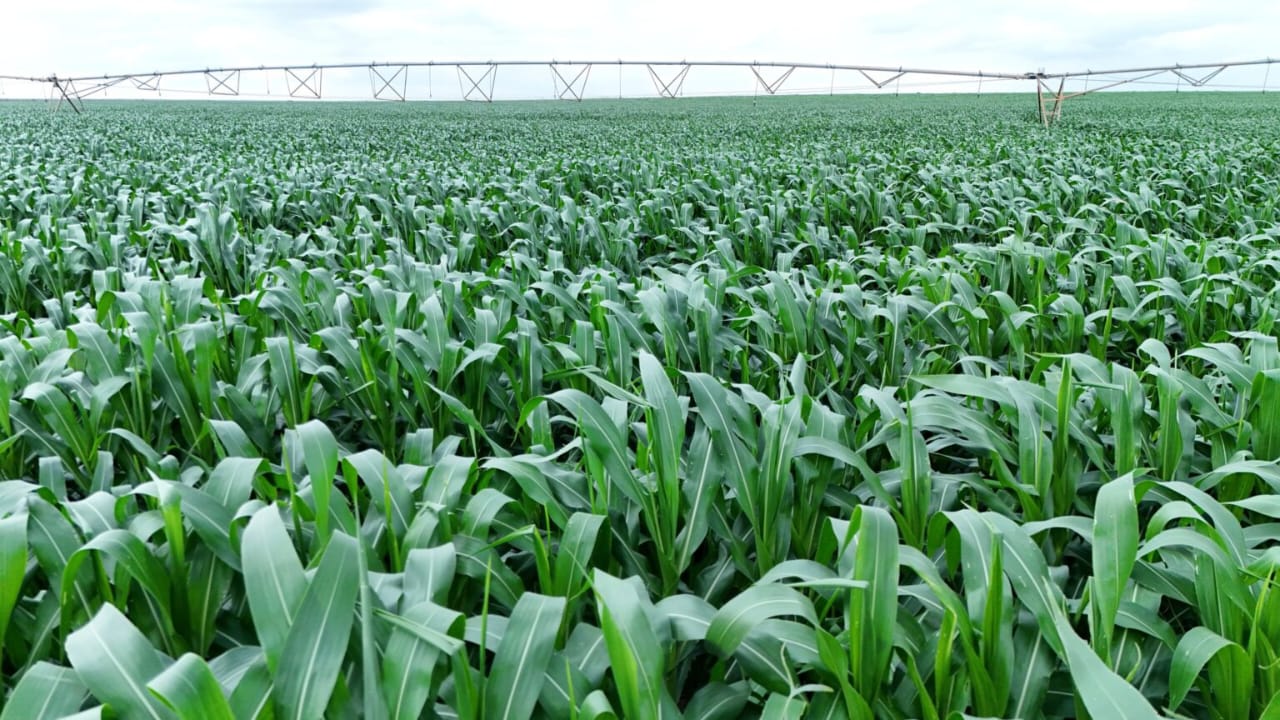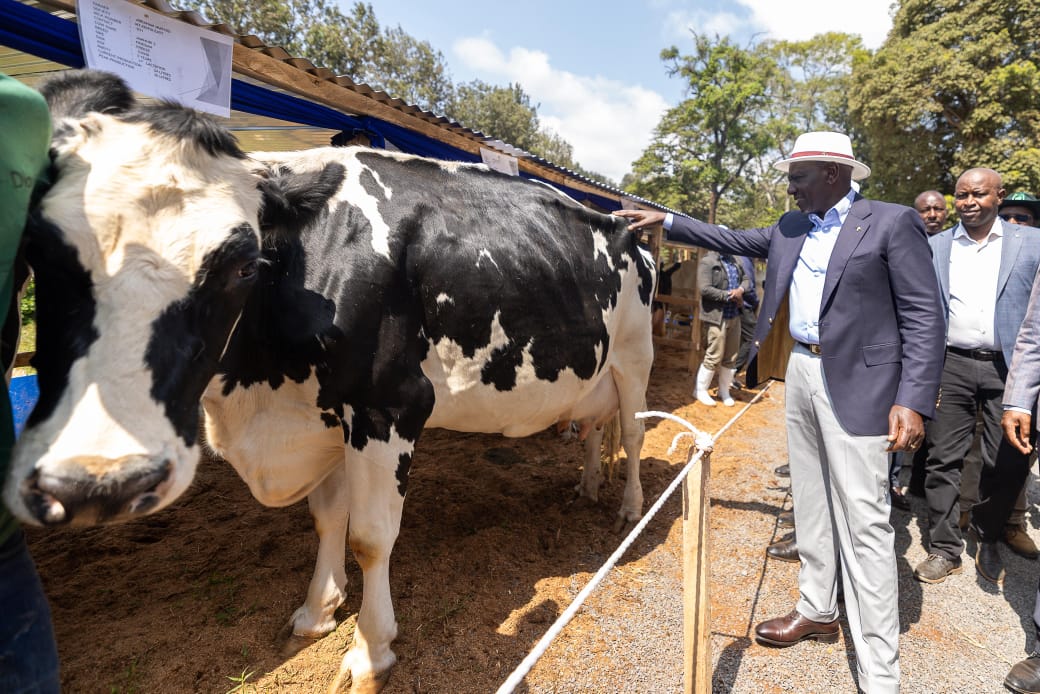
 An aerial look of the maize crop growing at the revived Galana Kulalu irrigation scheme located in the coastal region covering part of Kilifi and Tana River counties.
An aerial look of the maize crop growing at the revived Galana Kulalu irrigation scheme located in the coastal region covering part of Kilifi and Tana River counties.Agriculture
forms our country’s economic pillar and source of livelihood for the poor
majority.
As President William Ruto marks three years in office, the sector is among the most transformed pillars of the economy.
The revolutionary policies instituted by the Ministry of Agriculture have allowed millions of small-scale farmers to transform the manner in which they grow, process and market their fruits.
With agriculture contributing nearly half of the country’s Gross Domestic Product (GDP) such success in the industry, means a better tomorrow for Kenyans in terms of food security, economic growth and rural development.
It is in this understanding that the government came up with either new policies or amended the existing ones bringing on board a number of changes geared towards sustaining agriculture as the top GDP contributor.
The first step President Ruto’s administration took was to come up with a subsidised fertilizer scheme deemed to play a key role in helping the farmers to cultivate their crops using low-input costs.

The vision has been attained as production of maize, coffee, tea, avocado and macadamia increased. That was the plan we agreed on because you wanted us to manage our agricultural sector prudently,” President Ruto reminds Kenyans.
To cushion the farmers from glut, the Government went further and promoted the use of new farm technologies and innovations keeping in mind the reality that mechanisation, utilisation of improved seeds and ICT are the prime drivers to boost efficiency in value chains.
“On livestock, we have removed taxes on feeds to make dairy farming more profitable.
We are also establishing a KSh400 million plant to provide affordable semen to dairy farmers, aimed at doubling milk production and position Kenya as an exporter of dairy products,” President Ruto announced.
The government has also intervened to enhance drought-tolerant crops production, irrigation investment, and early warning systems.
The Ruto government has also invested in insurance coverage and other products cushioning farmers from shocks to enhance the resilience of farmers.
The small farmers produce the majority of Kenya’s agriculture and are the largest number of food producers. Farmer empowerment dominates government policy.
The capacity and inputs to the farmers have been covered by subsidies, extension services and training schemes with a view to imparting them with the best practices and enhanced productivity.
President Ruto emphasises the leadership of market access to change the lives of farmers by having cooperative agreements with them to eliminate intermediaries and go directly to customers from online sites, thereby becoming independent and exposed to fair returns for their produce.
These sites are technology-driven to close the gap between the producers and the consumers and enable transparency, reduce the cost of business and enhance the bargaining power for farmers, the President explains.
In recognition of the role that policy plays in determining productivity in the agricultural sector, the Ruto administration undertakes to implement reforms towards achievement of enabling environment for the sector’s wholesome development.
Land use policy has been streamlined to facilitate ease of doing business in agriculture, and institutions providing extension services, research and finance have been reformed.
Fiscal policies such as increased farm access to credit and insurance schemes have been introduced to mitigate farm risk.
Policy reforms are known to stimulate investment and provides a buffer to farmers from drought and pest attack shocks.
“President Ruto is highly committed towards inclusion and specifically focusing on youth and women empowerment,” adds the Government Spokesperson Dr. Isaac Mwaura.
Given that the demography of Kenya’s population is predominantly young, Dr. Mwaura notes, how agricultural business makes farming attractive to the youth is of concern to the future of business.
“We are committed to making agriculture more attractive to young people by providing training, mentorship, and access to resources.
Women farmers are also a priority and the government is supporting their participation in farming and agribusiness,” the Spokesperson further explains.
Agriculture Cabinet Secretary Mutahi Kagwe reasons that there exists an urgency to the public’s call for change on how we do business as a country in the agricultural sector.
“Agriculture has long been viewed narrowly, focusing only on production and now to ensure the sector thrives, we must place farmers at the center.
This action, should be driven by profitability and innovation, making it exciting and attractive to young people, not dull or routine.” Kagwe notes.
The CS says that his Ministry has suggested raising of its budget to 10 percent level so that it can support growth and development of the sector appropriately.
CS Kagwe concurs that technology has the potential of revolutionising the agriculture sector through embracing of new technologies such as artificial intelligence to boost efficiency and make the services of younger generations accessible to agriculture to guarantee growth and sustainability in the sector.
He is however, privy to the threat of the risks posed by global warming, unguessed weather, diseases and pests which continue to jeopardise farm production and he is more focused on collecting gains as well as ensuring food security in spite of the global volatilities.
Lameck
Odhiambo works at the Office of Government Spokesperson












